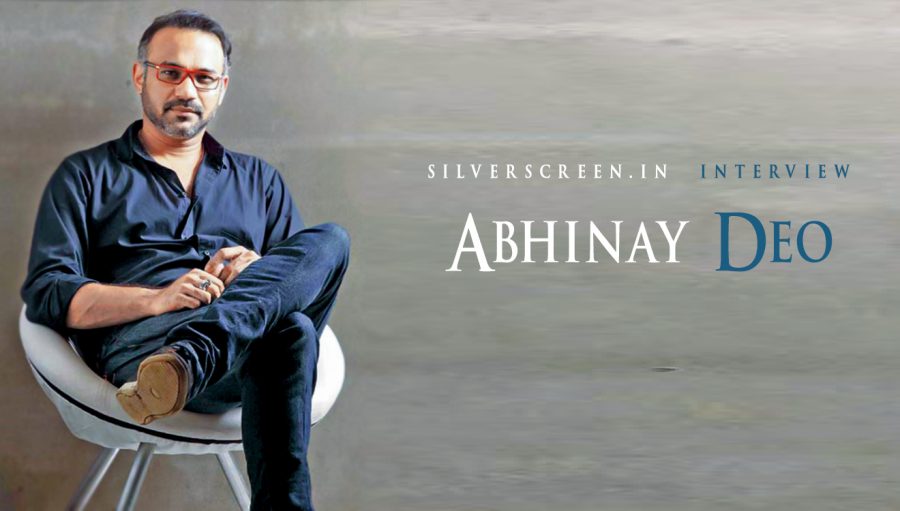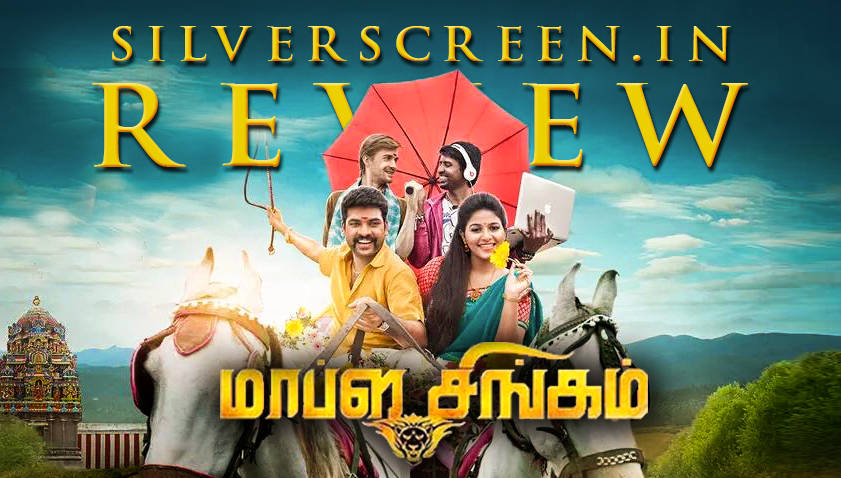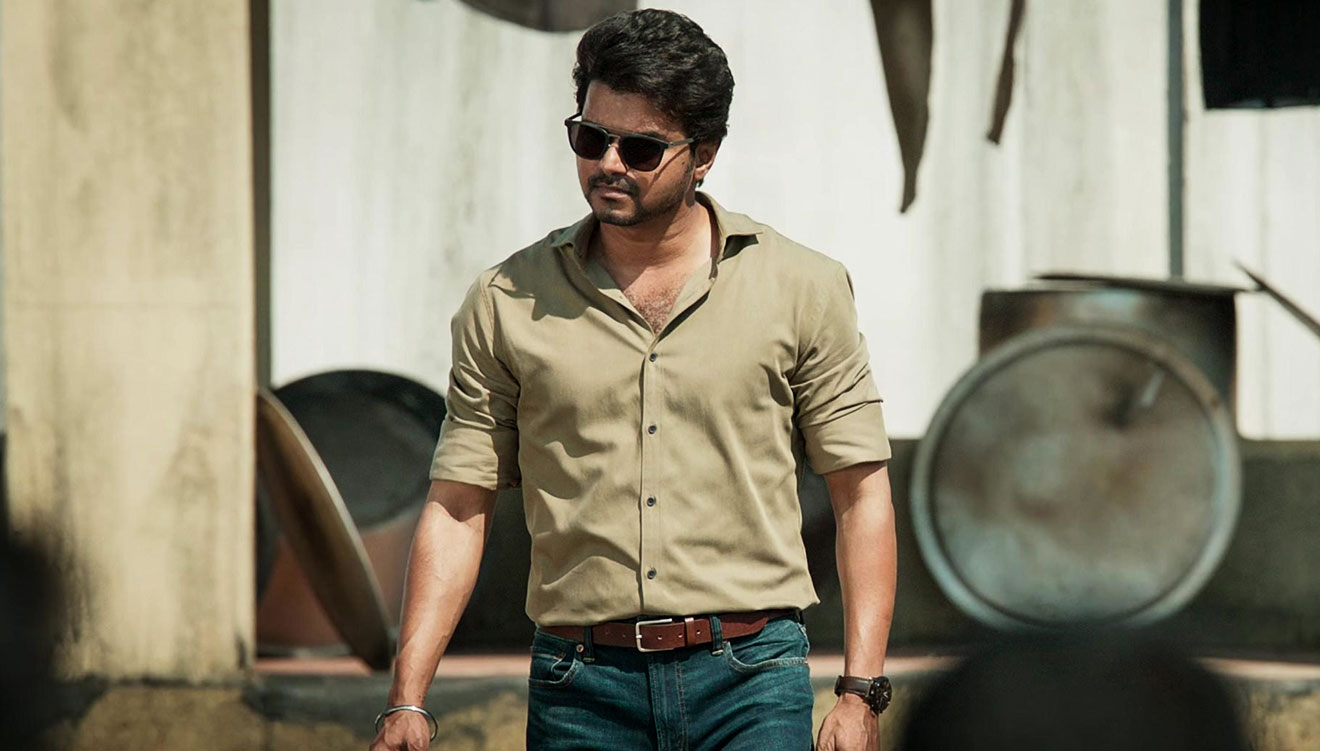Abhinay Deo, who surprised everyone with a no-holds-barred black comedy, Delhi Belly in 2011, is back with another quirky film after his forgettable Force 2. This time, about the travails of a man who tries to blackmail his wife’s lover.
In a quaint coffee shop in Mumbai, Abhinay talks to us about comedy, his fascination with the dark underbelly of a city and of course, Blackmail.
Tell us more about Blackmail.
About two-and-a-half years back, I got a mail from a friend of mine, Parvez Shaikh, who has worked on Queen, Bajrangi Bhaijaan. He sent me a script which had a working title – Blackmail. The minute I read it I was completely zapped as it was a crazy idea. After Delhi Belly, I was waiting for a mad enough script. When I read it, I knew I had found my next script for a comedy. The name also went through a lot of changes, but finally we came back to the working title.
The premise of Blackmail is old, how different is the treatment?
First and foremost, Blackmail is an age-old idea, but a husband blackmailing the wife’s lover is a completely novel twist to the concept. It’s a fresh way of looking at things. The difference is that it’s a twist on today’s social scenario. The aam aadmi of today is going through the rigmarole of paying EMIs, having to face traffic, bosses, increments and raises, having to fight so many battles in his daily life. And these battles ideally should not be there. Life should be simpler, but is not. And especially in this scenario, if a guy finds out that the one place he can come home to is also under turmoil as his wife is having an affair, that is the final nail in the coffin. It is like a slap on his face. What does he do? How does he deal with it? So Blackmail is a comic take on this unique issue.
I think the treatment is very much me, has certain nuances of slapstick, but it is unlike any other Bollywood film. We are not trying to make you laugh by making the characters slip on the road or slap each other. The characters in the film are going through crisis and we are deriving fun out of it.
What is it about Mumbai’s underbelly that seems to captivate filmmakers?
I think it is not just Mumbai. It is sometimes Delhi or some other place. What is captivating about the underbelly is that on a regular day, you don’t get to taste the so-called grime that the city has. Because you never like to walk looking at your feet, but you tend to look outside. That is what people do, and when you get a taste of it you can relate to it, as it connects you with your city. So that is something that filmmakers and cinemagoers love.
Writing comedy isn’t easy. How do you visualise it?
Delhi Belly was written by Akshat Verma and Blackmail is by Parvez Shaikh. I haven’t written any of the scripts I have directed till date, but I have obviously added to the scripts as a director and there is no such thing as process. Humour is all about timing. If you tell a very fantastic joke but tell it in a bad way, you are never going to get a laugh out of it. So tickling someone’s funny bone is a difficult task. You need to have the sense for right timing and right punches and you can’t stretch it. Real life is far more crazier than what we get to see in movies.
What was it like to have Irrfan Khan on the sets? Has his absence affected the promotions in any way?
Irrfan is a spectacular actor. I was looking forward to working with him as I wanted to know what he brings to the table. He keeps pushing the envelope with his fantastic acting skills. And it’s so beautiful to see him convert something on paper to screen. The news about his health is sad and disheartening. Of course, the promotions are affected. But we must give credit to the audiences, as they are aware of his ill-health and know that he won’t be able to promote the film. I believe he has delivered one of his finest performances in Blackmail.
Tell us something about your work on TV. Are digital platforms a game-changer now?
My television experience has been limited to 24 which we directed and produced. It is an incredible format. It is way bigger than the silver screen can ever be. The smaller screen actually reaches over 80 percent of our population. It is a very strong format. Though with 24, we tried to push the envelope on television and I think to a large extent we managed to accomplish it. After 24, there has been a significant change with response to the look, feel and content of the television shows. But today with the advent of digital medium, I think it’s opening a completely different Pandora’s box.
Earlier, the small screen was 24 inches. But now, the small screen is four inches. You watch shows on your iPad and other tablets. The digital medium is expanding your territory and visibility of any content ten fold. We don’t have to be at home to consume content, we can be sitting in a car or by the beach and watch our favourite shows on the mobile phone itself. It is a game-changer. We make content for five minutes. When did we ever make content for five minutes for television? Anything less than 20 minutes was not even under consideration. But today, we have short films coming on this platform. We have Amazon, Netflix etc. And all these mediums are helping us become more wiser and sensitive as an audience and also connect with the rest of the world.
A technical aspect that you think Bollywood needs to improve on?
We are there in terms of technicalities. I am going back to the primary desire of mine that our content needs to be good. We are not writing good stuff. We have the technical know how, we have the ability, we have the desired man-power, what we don’t have is good content which needs to be written. Writers need to work on longer, good content. Writers are churning out scripts in 15 days. It is not a race. The race is about the quality of content and that is what Bollywood needs to improve on.
But we seem to be moving towards content-driven films…
It is not going to happen overnight. I think, due to the exposure of the digital medium, and the Internet, the audience is moving there slowly. And with their exposure, comes the wisdom to consume content which is not your regular run of the mill stuff. Ideas of the 90s, including action films, are not working today. Even stars are not able to hold onto films if there is no content.
Why do filmmakers shy away from making out-and-out romantic films?
The idea of love has changed over a period of time. If you ask a person what his idea of love is today, it would probably be different from what his idea was in the 80s or the 90s. A lot has happened in these past 30 years. People have evolved and so have the dynamics of relationships. Very few people can relate to the romance of Raj and Simran today though Dilwale Dulhania Le Jayenge is the epitome of romantic films.
As a country and as an industry, we are making a lot of romantic films in Bollywood. But for how long will you make the same ‘girl meets boy and her family hates him’ kind of stuff? Three decades have passed and now the youth has changed. Their outlook towards love and romance has changed and that has prompted filmmakers to make films which the current generation can relate to.
Do you have plans to direct a Marathi film?
Recommended
Yes, most certainly. I don’t want to direct a film in Marathi just because I am a Maharashtrian. The whole point of doing a Marathi film is to do it because it should ‘ask’ for a Marathi film. Regional cinema is as strong as any other cinema in the world. If you look at Iranian films they are huge in the international arena, in spite of it coming from a small country. Marathi films, if they are made to look like Hindi films, or if the subject can be made in Hindi or English or any other language, what’s the point then? Who are you making the film for? All Maharashtrians know Hindi and they watch Hindi films. So your competition is with Hindi and I don’t want that. When a person sees my film, I want the person to feel that this film cannot be made in any other language. I want to make a film out of the soil of this state. I am working on a script right now, which is intrinsically based along the coastlines of Maharashtra.
That aside, I do have certain other projects coming up, but it is too premature to talk about those right now.
Blackmail, starring Irrfan, Kirti Kulhari, Arunoday Singh, Divya Dutta and Omi Vaidya, releases this Friday.
*****
The Abhinay Deo interview is a Silverscreen exclusive.



